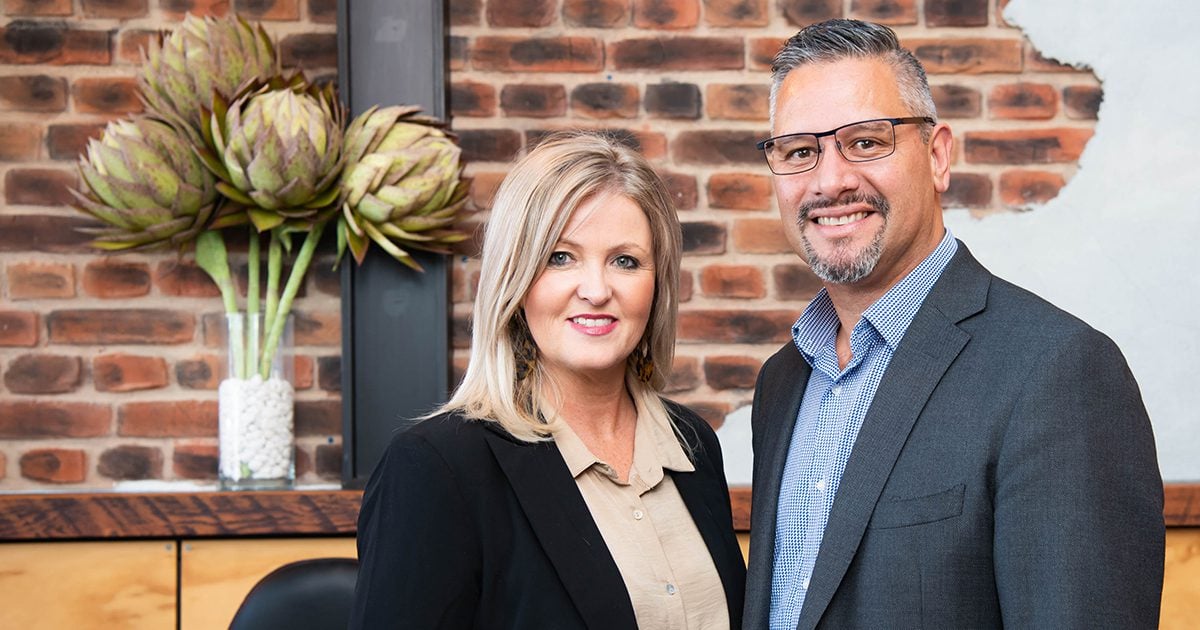Payment options for 15 January provisional tax
One of the challenges of paying provisional tax in times of economic uncertainty is making a payment that is both appropriate and does not negatively impact your cashflow.
Tax is one of the largest expenditure lines for a business, so you want to get it right.
You don’t want to overpay, because that’s money sitting at Inland Revenue (IR) that you could be utilising in your business. Conversely, you don’t want to underpay because you run the risk of facing IR interest and late payment penalties from the date of your underpayment.
Tax pooling offers a safety net if you cannot make your 15 January payment on time or accurately forecast your payment.
It's a service that offers benefits not available to those who pay IR directly, at no downside.
Pay provisional tax when it suits you
The Christmas-early New Year period is often a challenging time. After all, it is a four-week break from business as usual as things slow down.
For someone looking to manage cashflow, tax pooling lets you pay your 15 January provisional tax when it suits you.
Acceptance is guaranteed, and no security is required.
As an IR-approved tax pooling provider, TMNZ can be used to pay your tax on the actual date it is due (e.g. 15 January 2021).
You then pay TMNZ as soon as cash is available and IR recognises it as if the money was paid on time by you.
There are a couple of ways to pay.
You can finance your provisional tax payment. This sees you pay a fixed interest cost upfront and then the core tax amount at an agreed date in the future.
Alternatively, you can enter an instalment arrangement. Under this payment plan, interest is recalculated on the core tax amount owing at the end of each month.
The instalment arrangement offers flexibility in the sense you can pay as and when it suits your cashflow.
All tax pooling arrangements eliminate late payment penalties. The interest payable is significantly cheaper than what IR charges if you fail to pay on time.
Pay what you think, top up later
Most taxpayers tend to base their provisional tax on a 105 percent uplift of the previous year’s liability.
However, the current economic climate may have forced some in highly impacted sectors to revise expectations around profitability for the 2020-21 income year to the point where making payments based on the calculation above is no longer appropriate.
Others simply may be facing difficulty forecasting their liability. As such, they may want to keep cash close at hand in case things change suddenly.
Now there is some good news.
You do not need to pay provisional tax on 15 January based on uplift, nor do you have to file an estimate to pay less than uplift.
Instead you can pay provisional tax based on your forecast expectations of profitability for the year at the time.
Don't worry if, once you determine the liability for the 2020-21 income year, it transpires that you have underpaid. You can purchase any additional tax you owe on 15 January 2021 from TMNZ.
This can be done at a cost that is less than IR’s debit interest rate. It also eliminates any late payment penalties incurred.
That's because the tax you are purchasing from TMNZ was paid to IR on the date it was originally due.
You pay the core tax plus TMNZ's interest cost when you make your payment to TMNZ. TMNZ then applies the date-stamped tax sitting in its IR account against your liability.
IR will treat it as if you paid on 15 January 2021 once it processes this transaction. The remits any late payment penalties showing on your account.
Please contact us if you have any questions about tax pooling.
Harrison Grierson mitigates provisional tax risk
For Matthew Fleming, provisional tax is risky business as it requires a degree of crystal-ball gazing and guesswork.
However, he chooses to mitigate that risk by depositing these payments into TMNZ's tax pool.
It's a “no-brainer” because it gives him a better return if he overpays provisional tax and reduces his interest and late payment penalty costs if he underpays.
More about Matthew Fleming
Matthew is the chief financial officer at Harrison Grierson, one of New Zealand’s leading engineering and design consultancies.
It has offices throughout Aotearoa and predominately provides services locally, with more than 350 staff on the books.
Remarkably, the firm is blowing out 135 candles this year. No one stands the test of time for that long if they ain’t good at what they do.
And Harrison Grierson is good at what it does. A quick peruse of the significant projects it has been associated with during its lifetime is a testament to that.

Provisional tax is 'difficult to predict'
However, like most businesses, it is not immune to the problems provisional tax poses.
Matthew admits calculating the amount of income tax Harrison Grierson must pay Inland Revenue (IR) requires guesswork as its cashflow is up and down at certain times.
He knows the lay of the land during the first quarter – but the rest of the year can go either way.
Matthew says:
“It’s hard enough to try and guess next month’s results, but when you’re having to guesstimate your final year’s tax liability accurately, [it] does take a certain degree of crystal-ball gazing. We try to project our income and where our costs are going to be and having to pay tax on that sort of basis is a little bit of a risk.”
Even more so when one considers the taxman’s wide interest spread. As at the time of writing, they charge 8.35 percent if someone underpays provisional tax and pay just 0.81 percent if they overpay.
In other words, provisional tax is difficult to get right and very expensive when someone gets it wrong.
How Matthew manages that risk
Matthew chooses to deposit Harrison Grierson's provisional tax payments into TMNZ's tax pool.
It's an account operated by an IR-approved tax pooling provider that allows taxpayers to combine their payments. The overpayments from some can then be used to offset the underpayments by others.
TMNZ's tax pool account sits at IR and is overseen by an independent trustee.
Harrison Grierson keeps its date-stamped tax deposits in this account until Matthew confirms its liability for the year. He then arranges for the transfer of these deposits to the firm's own IR account to satisfy what they owe.
If they have surplus tax remaining, he can earn additional interest by selling this to someone who has underpaid (subject to market demand).
Conversely, if not enough tax has been paid, Matthew can reduce the IR interest cost and eliminate any late payment penalties Harrison Grierson faces through purchasing the tax they require from another taxpayer and applying it against the company’s own liability when he arranges their transfers from the pool.
Matthew: 'TMNZ makes provisional tax easier'
Matthew is a big proponent of the benefit TMNZ delivers when his provisional tax calculations go askew.
He says:
“[Tax pooling’s] such a great service in terms of advantaging taxpayers when they are trying to estimate their liabilities and are struggling with it. The ability to get a return when you have overpaid and the ability not to pay such punitive penalty rates when you have underpaid makes it a no-brainer.”
As someone who is having to estimate revenue and costs a lot, Matthew finds it useful that tax pooling gives him the flexibility and control to make payments “as we see fit” based on how the financial year is unfolding, without any considerable downside.
He also likes that he can access refunds faster – and without having to file a return. TMNZ makes it simple for him to manage the payments of the different entities belonging to Harrison Grierson as well.
Matthew recommends tax pooling to other businesses, particularly those with seasonal or volatile income.
“What makes TMNZ an easy choice is it makes the whole provisional tax regime easier to deal with.”
Contact our team to learn how you too can take advantage of tax pooling.
Provisional tax relief during tough times
As businesses look to conserve cash in response to drought, flooding or COVID-19, there's an IR-approved way to defer payment of their 2020 provisional tax until June next year.
Tax pooling lets taxpayers pay provisional tax at a time that suits their business, without facing interest and late payment penalties from the taxman.
Why might this be useful?
For most businesses, provisional tax will be calculated at 105 percent of the preceding year’s income tax liability.
But with recent adverse weather events in some parts of New Zealand, profitability may in some cases be less than forecast and some will not wish to pay based on this calculation. Others may also wish to hold on to funds to manage their cashflow at this uncertain time.
How tax pooling helps
A commercial tax pooling provider such as TMNZ can offer some respite.
It allows someone to pay provisional tax at a time that suits their business. You will only have to pay what you owe Inland Revenue (IR), not some amount calculated by reference to prior years which may be well in excess of your 2020 liability.
Using a tax pooling provider means those due to pay provisional tax on 28 February, 28 March or 7 May 2020 would have until 21 June 2021 to pay.
There is some interest to pay when using the service, but this is much cheaper compared to what IR currently charges (check latest use of money interest rates here) when a tax payment is missed or underpaid.
Things to know about tax pooling
- Tax pooling providers are approved by and registered with IR and operate under legislation found in the Income Tax Act 2007 and Tax Administration Act 1994. The service has been operating in New Zealand since 2003.
- Any payment made to a tax pooling provider is made into a bank account administered by an independent trustee. This independent trustee also oversees a tax pooling provider’s account at IR.
- There is no requirement to provide any security or financial information to use the service.
- Tax pooling cannot assist with GST or PAYE. It’s important to stay on top of these tax obligations during this time.
How tax pooling works
Say you have a provisional tax payment of $30,000 due in March 2020. With the uncertainty given recent events, you would rather not pay this right now if it can be avoided.
If you let TMNZ know about your position, we can make a tax deposit of $30,000 into our IR account on 28 March 2020 on your behalf. This deposit is date stamped as at the date that it is made.
TMNZ will also tell IR you are using tax pooling to pay your tax and IR will enter a note in its system telling its debt collection team not to pursue the outstanding payment.
Once you file the tax return and know the liability for the year, you pay the tax pooling provider. This payment must be settled before your terminal tax date. Your payment includes the core tax of $30,000 plus the provider’s interest cost.
If it turns out the actual liability for the year is less than the date-stamped deposit made on your behalf, don’t worry. You only pay for the tax you require, and the provider’s interest will be recalculated to reflect this.
Upon receiving your payment, the tax pooling provider transfers the deposit it is holding on your behalf from its IR account to your IR account. IR will treat it as a payment made on time by you and will wipe any interest and late payment penalties they may have put on your account.
We recommend you speak with your accountant or tax adviser about tax pooling if you have any questions.
Jucy Rentals Group say good bye to provisional tax stress
They say you can't make an omelet without breaking some eggs. In this context, a company cannot grow without taking some risks or investing in their business.
Jucy Rentals Group's day-to-day operations highly depend on cash in the bank. It faces a unique challenge when it comes to paying provisional tax. They have to account for two things:
- The seasonality of business with summertime as their peak period
- Investing into their products regularly.
The company's CFO, Jonathan Duncan, found a way to manage cashflow by using TMNZ tax pooling solutions Tax Deposit, Tax Finance and Flexitax to create structure around outgoing payments during the year.
The strategy is simple: Pay into the TMNZ tax pool using Tax Deposit when the cash is available; then if any top ups are required, pay through the tax pool with Flexitax or Tax Finance.
"It gives us the ability to manage our cash flows around that as to what works for us rather than trying to fit in with the timeframes of Inland Revenue and that is a big benefit for us," explains Jonathan.
Jucy Group have settled into the benefits of tax pooling through TMNZ.
Don't let 15 January provisional tax cause stress
Paying 15 January provisional tax can be stressful and a pain in the derrière for many businesses – but it doesn’t have to be.
There is an IR-approved service that allows taxpayers to make this payment when it suits them.
To understand why this might appeal, one must understand why 15 January provisional tax can be problematic.
For starters, let’s look at the timing of this payment. It is due when folks are enjoying the beach, BBQs, the bach or the boat. As the weather gets warmer, business activity for some chills during at this time of the year.
And while the current interest concession rules for taxpayers using the standard uplift method to calculate their provisional tax payments means they now have greater certainty over the amount due, this concession fails to recognise one thing that may be an issue for some during the Christmas-early New Year period: Cashflow.
Xero’s small business insights are telling. Only 39 percent of respondents were cashflow positive in January 2019. Moreover, invoices were also paid on average almost 11 days late during that month.
For some, the Christmas-early New Year period may mean six to eight weeks of no money coming in.
Pay 15 January provisional tax when it suits you
An IR-approved tax pooling provider such as TMNZ offers provisional taxpayers payment flexibility, without having to worry about Inland Revenue (IR) interest and late payment penalties.
A taxpayer entering a payment arrangement with a tax pooling provider has the option of paying what they owe in instalments or deferring payment of the full amount to a date in the future that better suits them.
Approval is guaranteed, and no security is required.
How does it work?
The tax pooling provider makes a deposit into its IR account on behalf of a taxpayer on the date their provisional tax payment is due (e.g. 15 January 2020). This deposit is date stamped as at the date it is made.
A taxpayer then goes about paying the tax pooling provider the core tax.
If they pay the full amount of tax owing, the tax pooling provider will transfer the entire deposit it is holding in its IR account on behalf of that taxpayer to the taxpayer’s IR account.
As this deposit carries a date stamp as at the date it was made, IR will recognise it as if the taxpayer paid their 15 January provisional tax on time once it processes this transfer. This will eliminate any IR interest and late payment penalties.
If the taxpayer opts to pay what they owe in instalments, the tax pooling provider transfers to the taxpayer’s IR account an amount of the date-stamped tax deposit that matches the amount of every part payment they make until they satisfy their liability.
IR will remit all interest and late payment penalties once the taxpayer pays the full amount owing.
What is the cost?
The taxpayer has some interest to pay – but this is cheaper than what IR charges when a taxpayer misses or underpays 15 January provisional tax.
Generally, it’s also less than a taxpayer’s existing finance rates.
A taxpayer choosing to finance the full payment of 15 January provisional tax to a later date will pay a fixed interest cost up front.
This is because they are agreeing to pay what they owe at an agreed upon date in the future.
The interest cost is based on the tax amount due and the date in the future they wish to pay.
Interest works a little differently if a taxpayer chooses to pay in instalments. The tax pooling provider will recalculate its interest on the core tax remaining at the end of each month.
How it compares to your other 15 January options
Another possibility is setting up a payment plan with IR.
However, as part of this process, you will need to supply financial information and details around the timeframe you expect to settle your liability. IR interest will continue to apply during any arrangement you strike.
You could also consider a short-term bank loan if cashflow issues will make paying 15 January provisional tax problematic. Again, there’s a process to go through and certain lending criteria must be met.
What you can do now
No doubt you are doing everything between now and when jolly ol' Santa rides into town on his present-laden sleigh to make sure you have enough funds to make ends meet if you feel the Christmas-early New Year period is going to be tough.
That probably means the usual jazz: preparing a budget, prioritising jobs you can complete quickly, chasing up anyone who owes you money and seeing if you can buy more time with creditors. Every dollar counts, right?
We have more tips in our free guide Better Cashflow Management that you might also find useful.
Now is also the opportune time to seek professional advice if, after doing a forecast, you feel you may encounter some strife. A good advisor will work with you to ensure a potential holiday cashflow issue does not become a crisis and help you manage your 15 January provisional tax payment.
How to find a great accountant: six qualities to look for
Thousands of independent business owners have an awful habit.
While steadily pedaling up the mountain of expansion, new hires, building a great brand, and newfound social media fame, these business owners attempt to juggle their tax payments and financial accounts with their little remaining time.
“We know our business best, so we’d may as well sort out the taxes ourselves…”
Maybe you are one of these owners.
Perhaps you’re putting off hiring an accountant due to the perceived expense.
Don’t delay! Your business can run more smoothly and efficiently than ever with an accountant’s help. An accountant with the right expertise will help you meet tax obligations and provide peace of mind at every stage of your business growth.
It’s time to leave the financial headaches to the professionals. We’ve compiled a list of reasons to convince you – as well as six qualities to identify in a great accountant – so you can keep the focus on nurturing and growing your business.
Should I hire an accountant?
The short answer is – YES.
A great accountant will help with:
- Forecasting
- Tax reporting
- Managing cashflow
- Paying provisional tax and assisting with Inland Revenue (IR) compliance
Unless you’re familiar with tax structures, hiring a chartered accountant is crucial to the success and longevity of your business, and is money well spent.
How do I choose the right accountant?
From start-ups to industry giants, all businesses benefit from hiring an accountant who can assist with managing risk and planning for growth. Provisional tax can be a contentious issue for small business owners.
Your accountant can ease the impact of provisional and terminal tax dates on your business by using tax pooling. Tax pooling gives you control over your provisional payments so that you aren’t stung with use of money interest and penalties if you miss or underpay IR.
Need to know how to find an accountant? Check out Premium TMNZ Accounting Partners.
We recommend you treat your search for an accountant as seriously as you would the recruitment of a new employee. You might seek word-of-mouth referral from peers, friends and family members. Ask them for feedback on your short-listed accountants, you may learn something your research wouldn’t have included.
Look for accounting firms with a similar size to your own company. As a rule, small to medium firms provide a more personalised service specialising in small business work and often have more competitive rates compared to larger accounting firms.
What questions should I ask an accountant?
In your search to find an accountant, look for these qualities:
- Are they registered as a chartered accountant in NZ? These professionals are experts in their field and adhere to the strictest NZICA Code of Ethics.
- How are their communication skills? Jargon is useless to you. Your accountant should be able to explain budgets and financial reporting in layman's terms for you and your team to easily understand.
- How much experience do they have with your business type or industry?
- What are their costs? Will they bill you hourly or monthly? Do they have a fixed fee?
- Do they have an entrepreneurial mindset, think outside the box and embrace innovation?
- Are they flexible and open to change? Your business will continue to grow and evolve. Your accountant needs to help you adapt to this change and manage it financially.
Once you find an accountant in New Zealand who you believe can help your business develop and grow, take the time to establish and nurture a solid, long-lasting business relationship.
Finding the best accountant for your business
Taxes, end-of-year-reports and ever-changing laws and legislation can get complicated. Don’t leave yourself open to penalties and interest. Find an accountant who understands your business and is willing to work with you to meet your goals.
The six qualities listed are a guide to help you find the best fit for your business. A good accountant may be an investment at first, but it is one you will be very grateful for in the long term. Take your time looking for someone who is qualified but also someone you get along well with as the relationship is just as important along the way to success.
Walker & Co Real Estate remedy big provisional tax problem
Provisional tax is not without its challenges. Marc and Lee Walker from Walker & Co Real Estate know this all too well.
The husband and wife duo do not take umbrage at paying tax. No siree Bob. It’s part and parcel of being in business. And they accept it ain’t going away.
But they do have issues with the provisional tax system in its current condition.
Occasionally they feel the whole thing isn’t conducive to helping their small business grow. After all, having to pay tax even though they have not earned a single cent can certainly be a kick in the ribs.
But that is a consequence of Inland Revenue’s (IR) inflexible payment dates. Pay up – or pay the price.
If this sounds familiar, grab a pew and lend them an ear. Marc and Lee are about to detail how paying provisional tax with TMNZ enables Walker & Co Real Estate to remedy this problem.
Introducing Walker & Co Real Estate
To understand their perspective on provisional tax, one must understand more about their business.
They own and operate Walker & Co Real Estate. It’s a boutique agency in Upper Hutt. Warm and welcoming, it’s the type of place that caters to all walks of life. There’s always a cuppa on hand as they converse with buyers and sellers to deliver the best outcome. It certainly has that homely feel.
Collectively, Marc and Lee bring nigh on 20 years’ experience within the industry. So, they know what’s what. Five of those have been spent running Walker & Co Real Estate.
Like any business, there are peaks and valleys. There are sales aplenty in spring and Christmas. In winter, business chills a little.
That seasonality affects Walker & Co Real Estate. When cash is in short supply, Marc says it can be tough getting things like marketing and advertising squared away.
Adds Lee: “Obviously when your commissions come in there’s good money. However, you’ve got to sell a property before you get the cash coming in. So cashflow is definitely…very difficult.”

Provisional tax can hinder business growth
And the last thing Walker & Co Real Estate wants to do is hand over money to IR when things are tight.
That puts the kybosh on their business plans as they are having to use the funds they need to operate or would invest elsewhere to cover it.
That, in turn, does not help them earn the do-re-mi.
Why Walker & Co Real Estate uses TMNZ
As they prefer to keep money in their business, Walker & Co Real Estate chooses to pay its provisional tax with TMNZ. This allows them to make their payments when it suits their business cashflow.
“Having the resource to put into your business is very important,” says Marc.
“Growth is important and if you take resources away from companies like us, our growth gets stagnant a little bit and it takes longer to get traction. To not worry about [provisional tax], it certainly helps us grow.”
Lee agrees. “It takes away all those stresses. You’re passing it on to somebody else and saying ‘take care of this for me, I don’t know what to do, we’ve got a shortage of cashflow’ and it’s the best way of putting more energy into your business and doing the things that you’re good at.”
All that peace of mind costs the pair is TMNZ’s interest, which is much cheaper than the usurious interest IR charges. Not a bad trade-off for greater flexibility. No nasty late payment penalties either.
Lee says everything was easy to set up. Forget about phoning IR and, providing you can get through to someone, facing an “interrogation” from its staff.
“[TMNZ are] there to help you – and they know their stuff.
“If you are unsure of anything at all, they will answer everything in a way that you can understand it. The everyday person, because there’s accountant language and everyday person language and they put it in a way that you can understand it as an individual or a company.”

Just give it a try
Marc reckons other business owners should give serious thought to using TMNZ.
“You solve a problem for a lot of businesses,” he says.
“I talk with a lot of business owners and we’re all the same – there’s a certain month in the year that you need to get things squared away and this from my point of view would certainly help them.”
Lee is much more effusive in her praise.
“Every time you have got that payment coming up you know you can give them a call and they will have it sorted for you. When you use the professionals and they do a job and do it well, leave it to them.
“Try it for a couple of years and see how you go. You’ll never turn back and will use them every time.”
Five essential accounting tips for small and medium businesses
Getting the right small business accounting advice is vital for the success and growth of your small business. Here are five essential tips to help organise accounting for your small business.
Keep a record of tax deadlines
Knowing when business taxes are due throughout the financial year is crucial for the health of your small business. If you miss an important deadline, you could receive a costly penalty.
In New Zealand, staying on top of GST returns and paying provisional tax on time is especially important.
Inland Revenue (IR) has resources available to remind you of these important dates. You can also check out our provisional tax calendar to see your terminal tax and provisional tax dates. It is important to be proactive about tracking these yearly deadlines to meet your ongoing tax obligations.
Make the most of automated accounting software
Automated accounting software can be a lifesaver for small businesses. Accounting software covers many of the fundamentals of running a small business. This software helps keep track of expenses and automatically generates forms and reports about your business. This lightens the load of your day-to-day accounting practices.
TMNZ is integrated with accounting software such as Tax Lab to make it that much easier and convenient to use tax pooling if a payment has been missed. To get the most out of accounting software, we would recommend a chartered accountant look over the specifics of your business for any gaps that may have inadvertently been overlooked.
Know your limits and hire a professional when necessary
Many small to medium business owners try to tackle bookkeeping on their own to save costs. But in the end, making errors or filing expenses incorrectly could prove costlier than hiring a professional.
Maintain a relationship with a chartered accountant who can help keep your books tidy. A reliable accountant can help you arrange tax pooling for your business. Tax pooling provides you with more control and flexibility to manage tax payments and can save your business money from late payment penalties and use of money interest.
You may only need your accountant’s services several times a year. However, having a professional on hand for accounting advice gives you precious peace of mind that your accounting is in order.
Don’t get caught out by unexpected costs
The longer your business is in operation, the more likely you are to face a large, unexpected cost. For example, you may find yourself needing to repair or upgrade your business’ equipment. This is costly, but unavoidable for your business to operate.
An unexpected cost could even come in the form of an opportunity to grow your business, such as a market gap that you could fill perfectly. Taking advantage of such opportunities requires up-front investment.
In either case, expect the unexpected and put money aside to cover unforeseen operational costs. Or consider using your tax payments as a line of credit with Tax Drawdown.
This is sound advice for any small business. Doing so will save you the headache of scrambling to cover a significant bill or missing out on the chance to grow your business.
TMNZ is trusted by thousands of Kiwi small and medium-sized businesses. We are the leading tax pooling provider in New Zealand and work closely with IR to ensure our services are secure and reliable.
Get in touch with our team today for tax pooling and provisional tax payment advice.
First year of trading and provisional tax
What are a taxpayer’s provisional tax obligations in their first year of trading?
This is a question we receive a lot. In fact, there is certainly a lot of confusion out there.
As most know, their first year of trading is not tax-free. However, when income tax is due and payable depends on a taxpayer’s residual income tax (RIT) for the year and if they are a 'new provisional taxpayer'.
So, with that in mind, we explain below how the provisional tax rules work for the 2018 tax year onwards.
First year of trading: RIT is less than $60,000
Any income tax due for the year is due on your terminal tax date.
Interest will apply from this date if a taxpayer does not pay by then.
However, if the RIT is more than $5000 in their first year of trading, they will be a provisional taxpayer for the following year.
First year of trading: RIT is $60,000 or more
Inland Revenue (IR) may charge interest if you fall into the ‘new provisional taxpayer’ category.
The new provisional taxpayer criteria are different for individuals and companies/trusts.
Individuals are a new provisional taxpayer if:
- Their RIT for that tax year is $60,000 or more
- Their RIT in each of the four previous tax years was $5000 or less
- They stopped receiving income from employment and started to receive income from a taxable activity during that tax year.
Companies/trusts are a new provisional taxpayer if:
- Their RIT for that tax year is $60,000 or more
- They did not receive taxable income from a taxable activity in any of the four previous years
- They started receiving income from a taxable activity during that tax year.
Please take note of the different criteria for individuals and companies/trusts. This catches taxpayers out.
It is important to mention the term 'taxable activity' has the same meaning as it does in section 6 Goods and Services Tax Act 1985. However, for the purposes of provisional tax, the exclusion in the Act pertaining to GST-exempt supplies does not apply.
As such, determining if you are a new provisional taxpayer can be tricky in some instances.
From what instalment(s) will IR charge interest for new provisional taxpayers?
IR may charge interest (see the current rate here) on the number of provisional tax payments a taxpayer could have made during the first year of trading if you meet the new provisional taxpayer criteria.
Of course, that number depends on the date on which their business starts trading.
For someone with a 31 March balance date, refer to the table below.
| If a taxpayer’s first year of trading starts… | Then the number of provisional tax instalments payable is… |
| Before 29 July | Three (28 Aug, 15 Jan and 7 May) |
| On/after 29 July but before 16 December | Two (15 Jan and 7 May) |
| On 16 December or any time after that | One (7 May) |
These dates will differ if your balance date isn't 31 March or you file GST returns on a six-monthly basis.
The amount due at each provisional tax instalment
So, what happens if you meet the new provisional taxpayer criteria in your first year of trading?
Well, put simply, IR will divide your RIT for the year by the number of instalments you were liable to pay per the table above.
For instance, say your business starts trading on 1 October and your RIT for the year was $69,000.
IR will charge interest from two provisional tax dates: 15 January and 7 May. The amount on which interest will accrue at each date will be $34,500.
On the positive side, late payment penalties will not apply.
Reducing exposure to IR interest
Taxpayers may wish to make provisional tax payments in their first year of trading to mitigate their exposure to IR interest if they expect their RIT is going to be $60,000 or more.
If they are an individual or a partner in a partnership and meet certain criteria, they may also get an early payment discount of 6.7 percent on these payments.
TMNZ’s Flexitax lets you reduce the IR interest cost on the tax owing by a significant amount.
This is done by applying surplus tax paid to IR on the date it was originally due against your liability. IR treats this as if you paid on time, eliminating any interest and late payment penalties incurred.
This article has been written in general terms only. You should not rely upon this to provide specific information without also obtaining appropriate professional advice after detailed examination of your situation.
Prodigy Hair Industry cuts tax stress
Krystle Walker from Prodigy Hair Industry loves cutting and styling hair. She does not love provisional tax.
That’s why she uses TMNZ. They cut away the stress this causes her so she can focus on running and improving her salon.
But we'll get to that. First, some background.
The Prodigy Hair Industry story
Krystle is the owner and manager of Prodigy Hair Industry. It's in Upper Hutt, a city about 30 minutes outside of Wellington.
She has been plying her trade as a hairdresser for 12 years. Four of those have been at Prodigy Hair Industry.
It’s a stylish set-up she’s got on Fergusson Drive.
Things are humming nicely at Prodigy Hair Industry too. Seven staff on the books and a good customer base are a testament to that.

The challenges of being a business owner
Krystle is still wearing her training wheels in term of running her own business.
As she is discovering, transitioning from employee to employer is not without its challenges. There are wages to pay and hair products to purchase, among other things. Cashflow is a biggie.
Provisional tax is another challenge.
Krystle admits she is not a tax geek. In fact, in an ideal world it would probably be something she would not have to concern herself with.
But alas, this is not an ideal world. She knows there is no escaping the clutches of the taxman. Falling out with Inland Revenue (IR) has serious repercussions too.
Taking care of provisional tax so she can take care of business
Krystle avoids any such precarious situations with TMNZ.
Her tax pooling arrangement means her tax is taken care of. She makes payments when her business cashflow permits and TMNZ applies these to the correct tax dates.
No need to worry about late payment penalties. There is interest to pay. However, this is much lower than what IR charges when someone doesn't pay tax on time.
“It does reduce the stress month to month. Knowing that you have got my back, I don’t have to worry about that,” she says.
It allows Krystle to get on with doing what she does best – cutting and styling hair and making sure Prodigy Hair Industry is satisfying its customers’ needs.

“I can put 100 percent into the business and my staff.”
The concept of paying provisional tax through TMNZ was about as familiar as the Klingon dialect when her accountant first broached the idea.
But after hearing how it operates with the blessing of IR, Krystle says it was too good to pass up.
Now she has no qualms about recommending TMNZ to others occupying a similar waka to Prodigy Hair Industry.
“It’s great, especially for small business owners.
“It just gives me the confidence with my day-to-day cashflow.”
TMNZ is New Zealand’s first and largest tax pooling provider. Get in touch to learn more.









